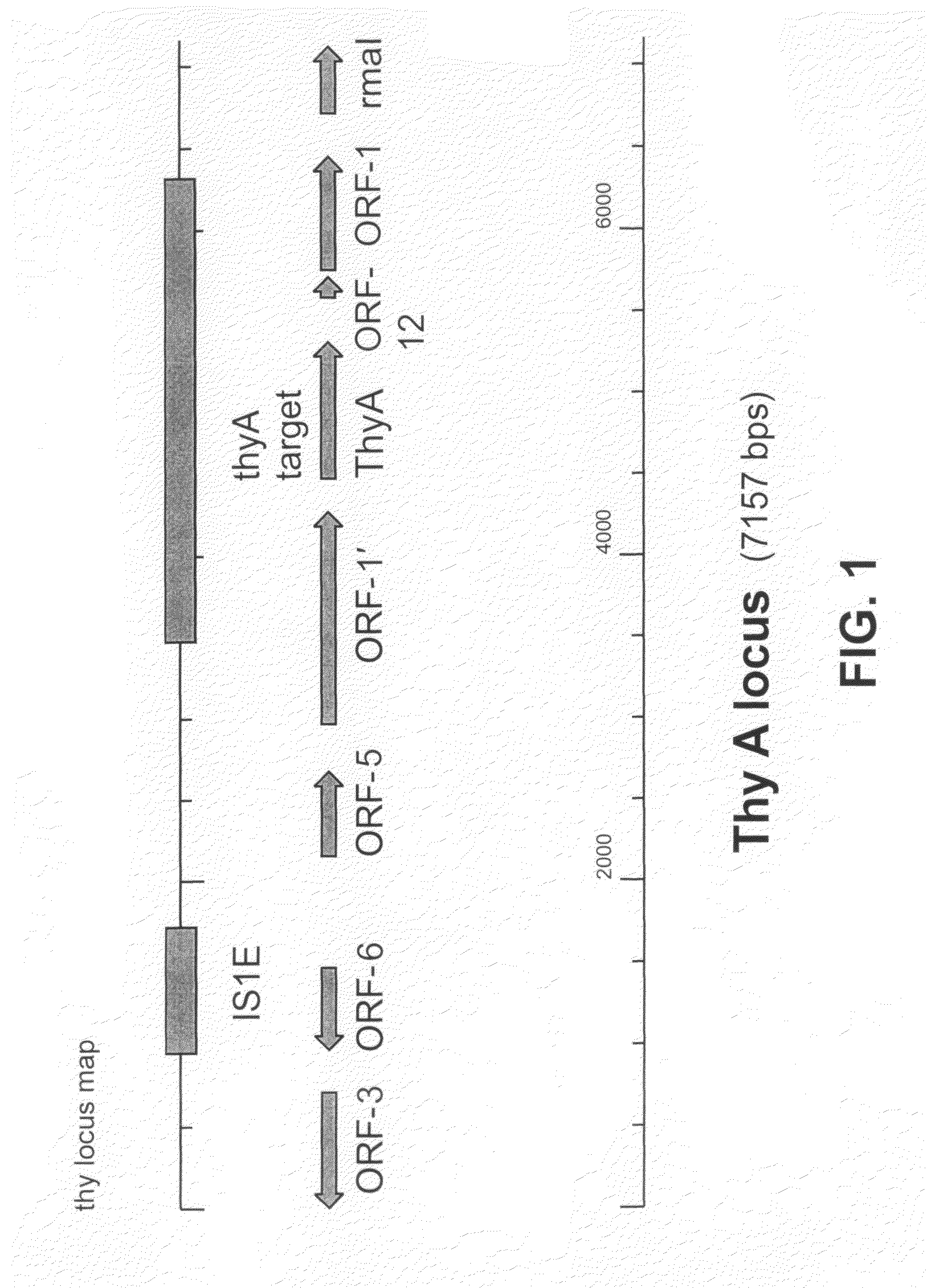Self-containing lactococcus strain
a technology of lactococcus and self-contained strains, which is applied in the direction of plant growth regulators, enzymes, biocide, etc., can solve the problems of reducing the possibility of survival of genetically modified microorganisms in the environment, affecting the survival rate of genetically modified microorganisms, and insufficient physical containmen
- Summary
- Abstract
- Description
- Claims
- Application Information
AI Technical Summary
Benefits of technology
Problems solved by technology
Method used
Image
Examples
examples
[0035]From L. lactis MG1363 (Gasson, 1983) regions flanking the sequence according to Ross et al. (1990a) have been cloned.
[0036]The knowledge of these sequences is of critical importance for the genetic engineering of any Lactococcus strain in a way as described below, as the strategy will employ double homologous recombination in the areas of 1000 by at the 5′ end (SEQ ID NO:1) and 1000 by at the 3′ end (SEQ ID NO:2) of thyA, the “thyA target.” These sequences are not available from any public source to date. These flanking DNA fragments have been cloned and their sequence has been identified. The sequence of the whole locus is shown in SEQ ID NO:3; a mutant version of this sequence is shown in SEQ ID NO:5. Both the 5′ and 3′ sequences are different from the sequence at GenBank AE006385 describing the L. lactis IL1403 sequence (Bolotin, in press) or at AF336368 describing the L. lactis subsp. lactis CHCC373 sequence. From the literature, it is apparent that homologous recombinatio...
PUM
 Login to View More
Login to View More Abstract
Description
Claims
Application Information
 Login to View More
Login to View More - R&D
- Intellectual Property
- Life Sciences
- Materials
- Tech Scout
- Unparalleled Data Quality
- Higher Quality Content
- 60% Fewer Hallucinations
Browse by: Latest US Patents, China's latest patents, Technical Efficacy Thesaurus, Application Domain, Technology Topic, Popular Technical Reports.
© 2025 PatSnap. All rights reserved.Legal|Privacy policy|Modern Slavery Act Transparency Statement|Sitemap|About US| Contact US: help@patsnap.com



